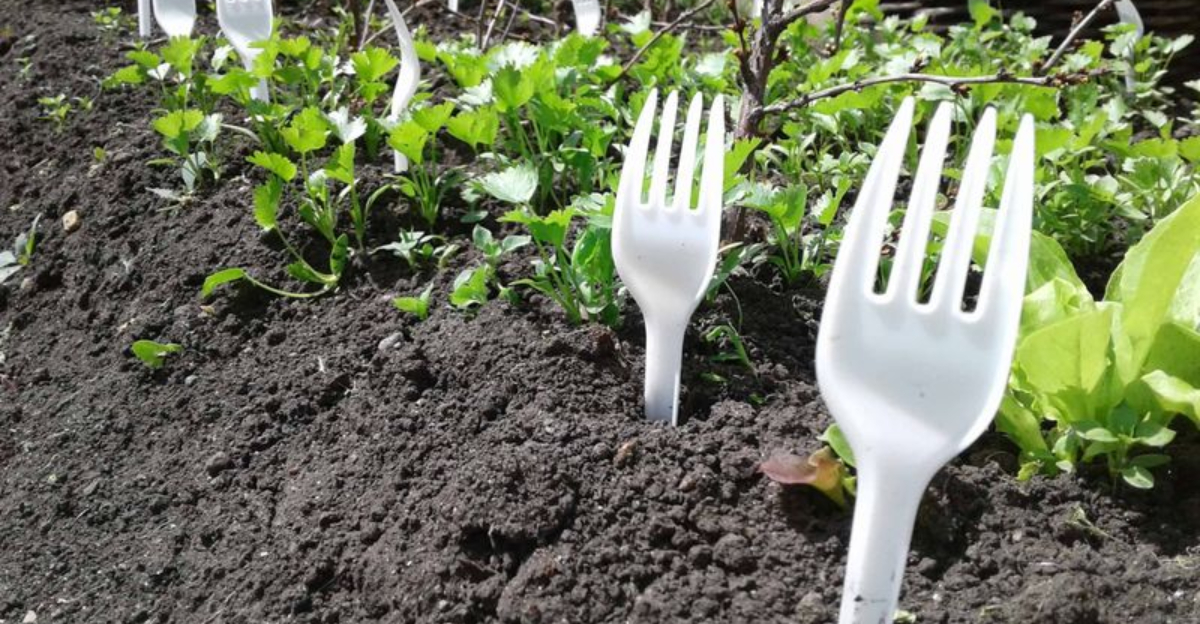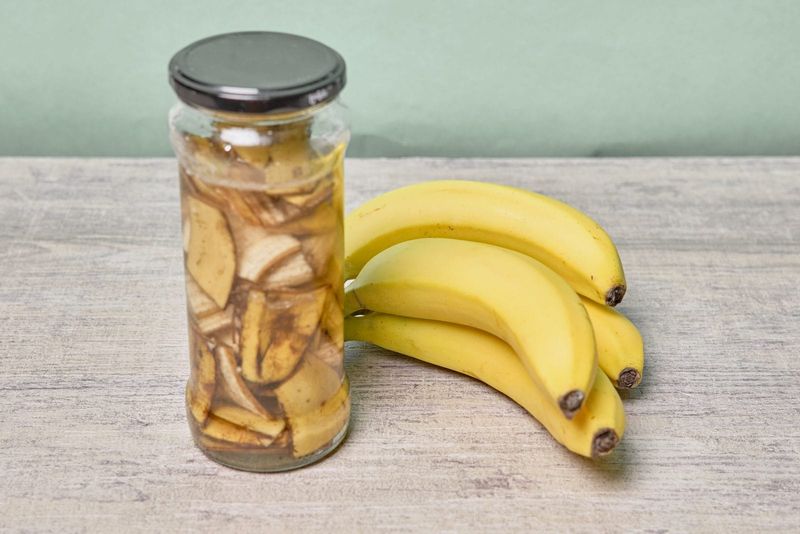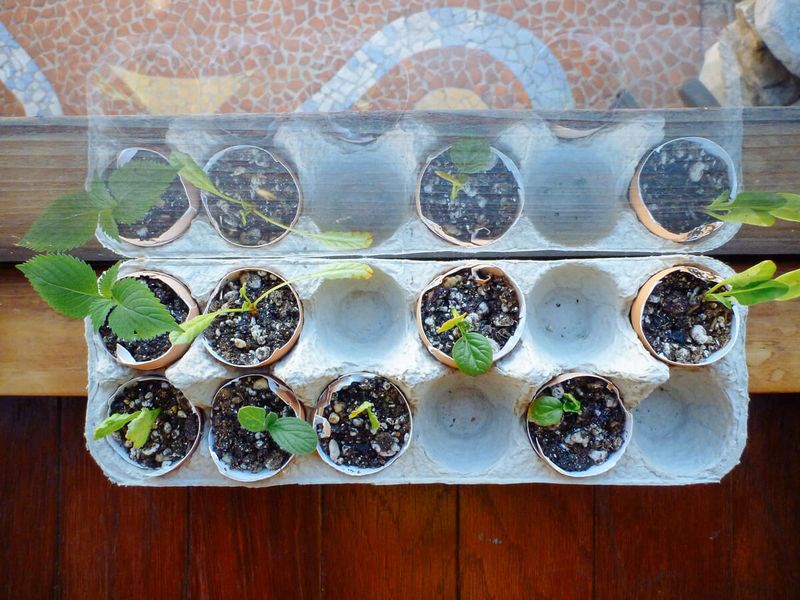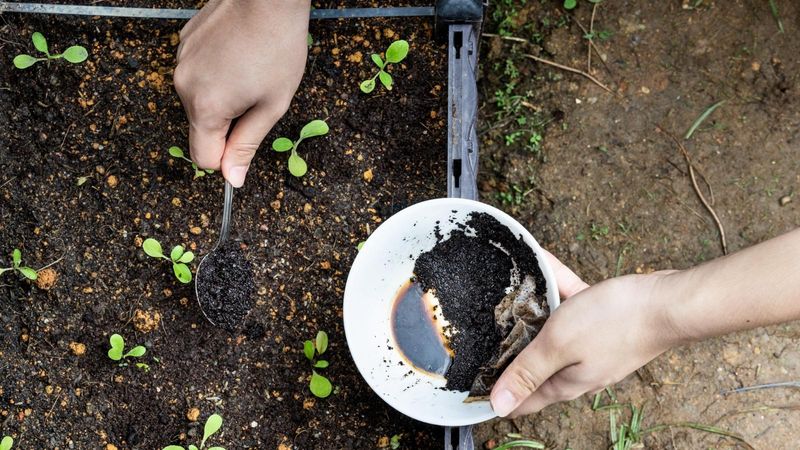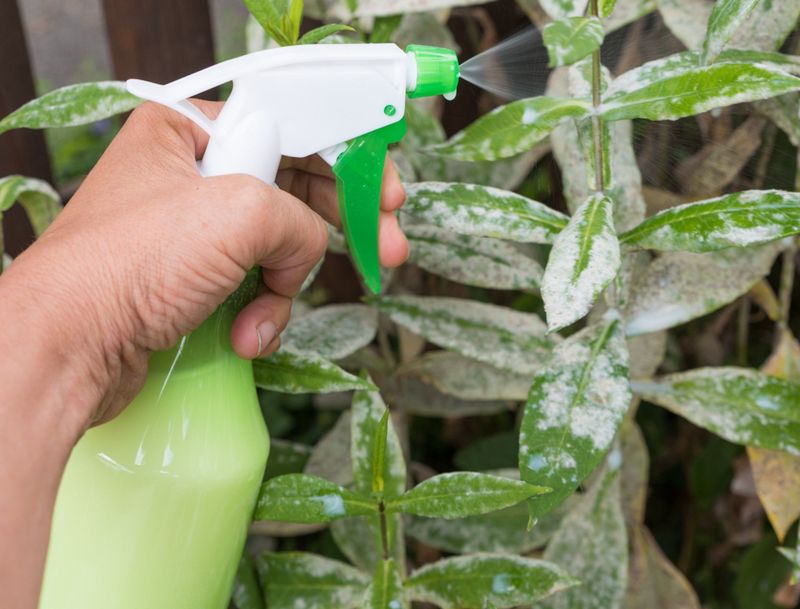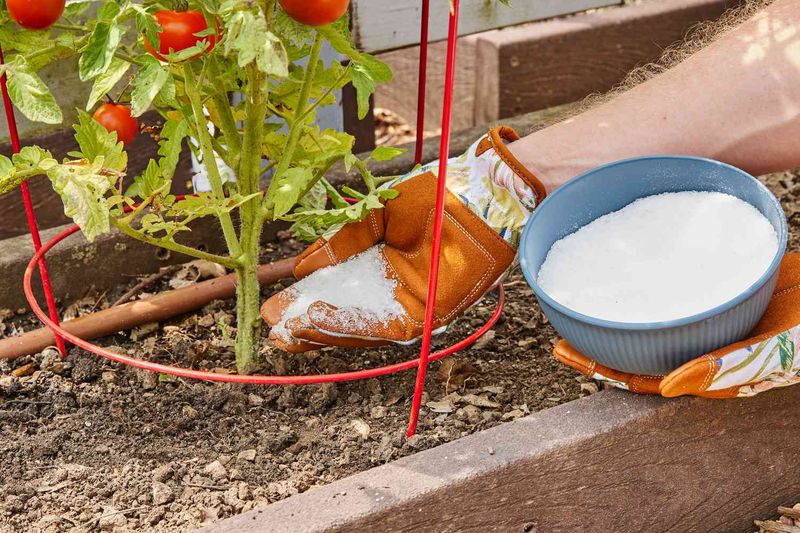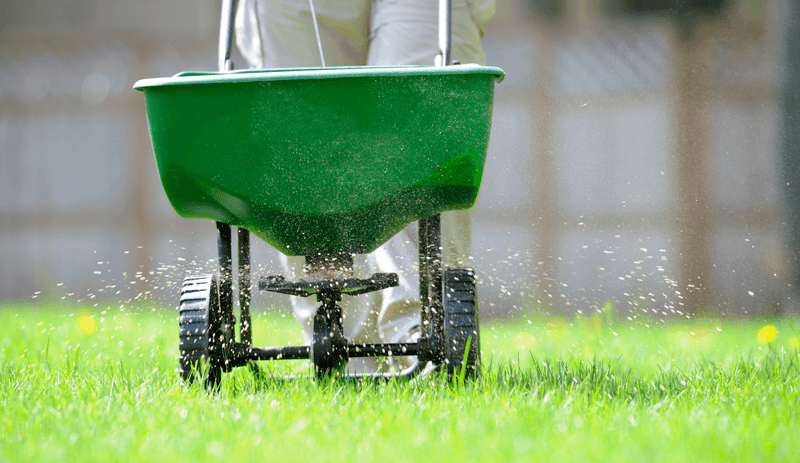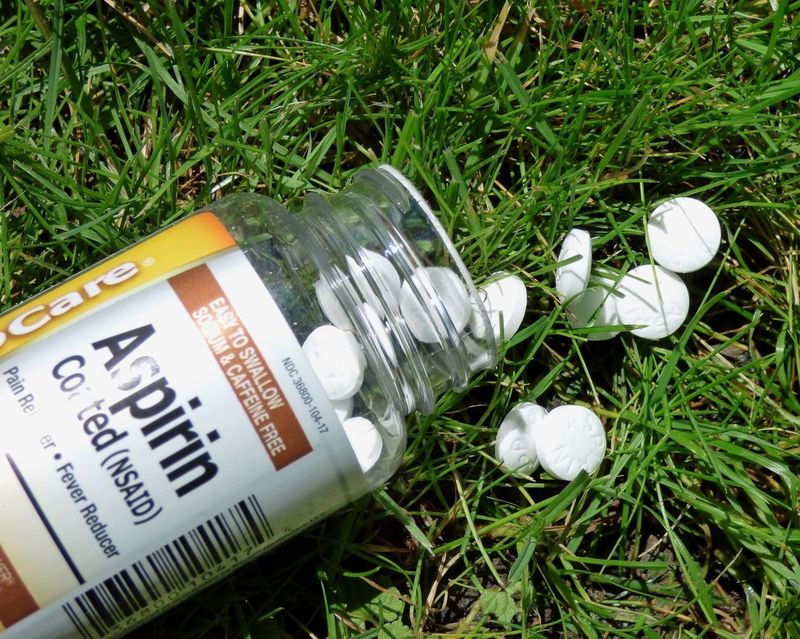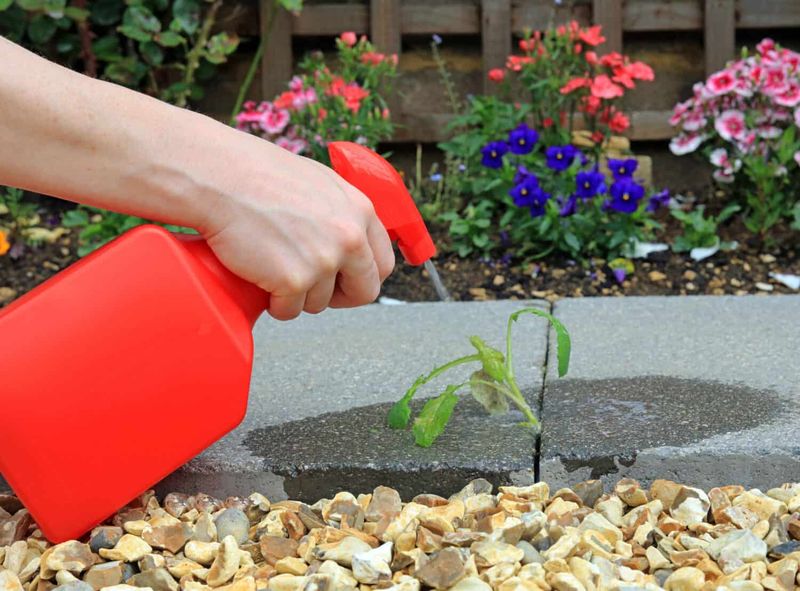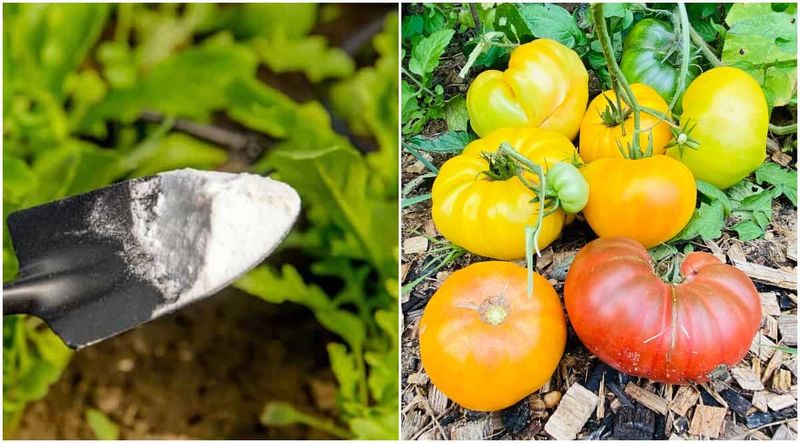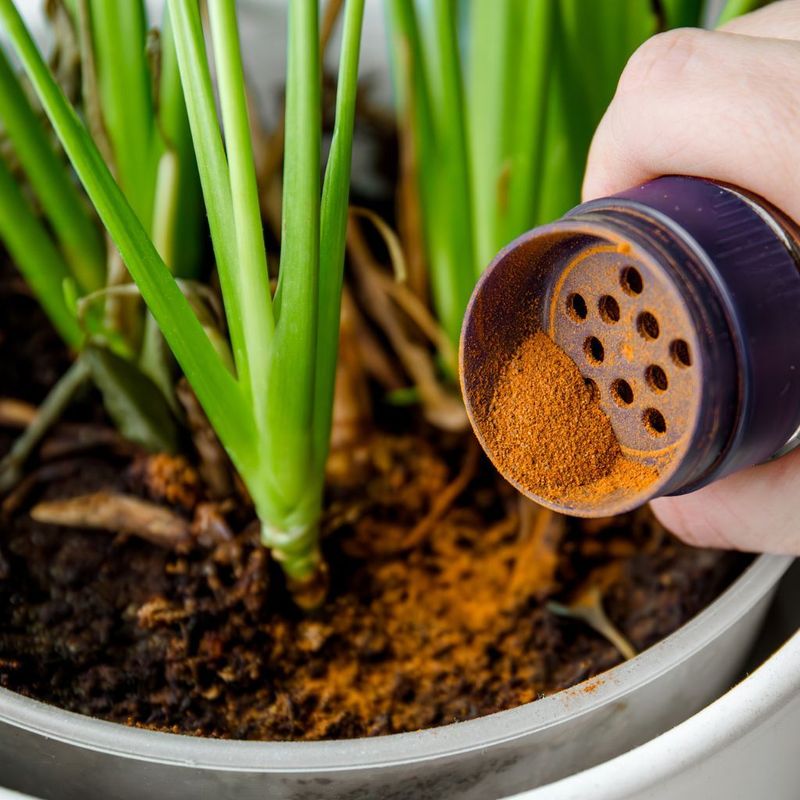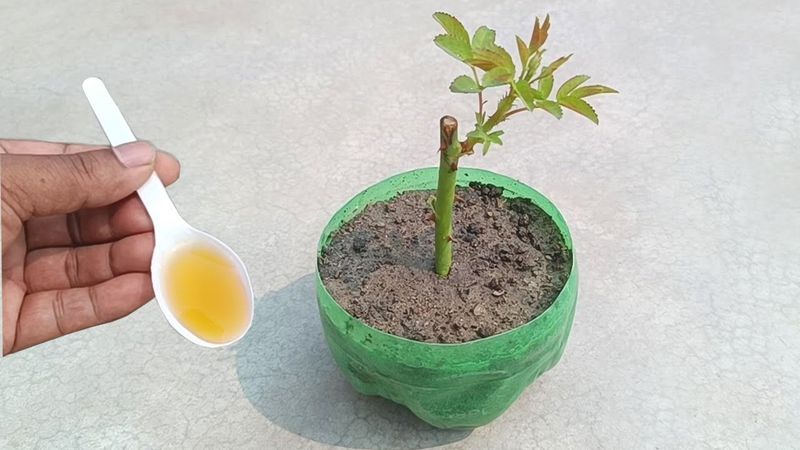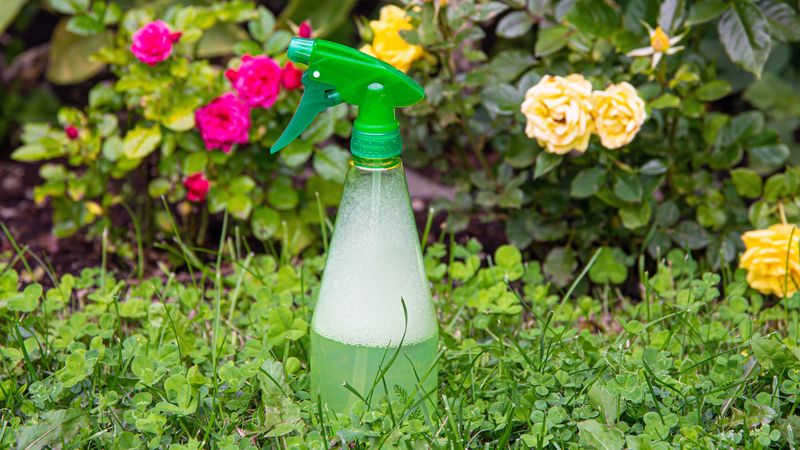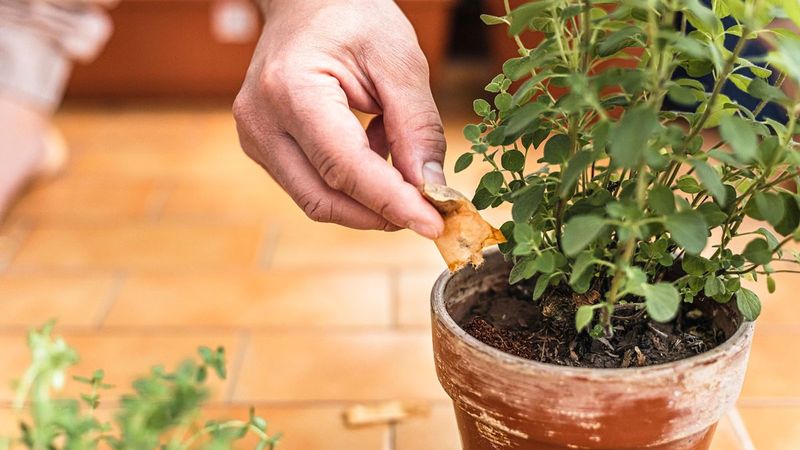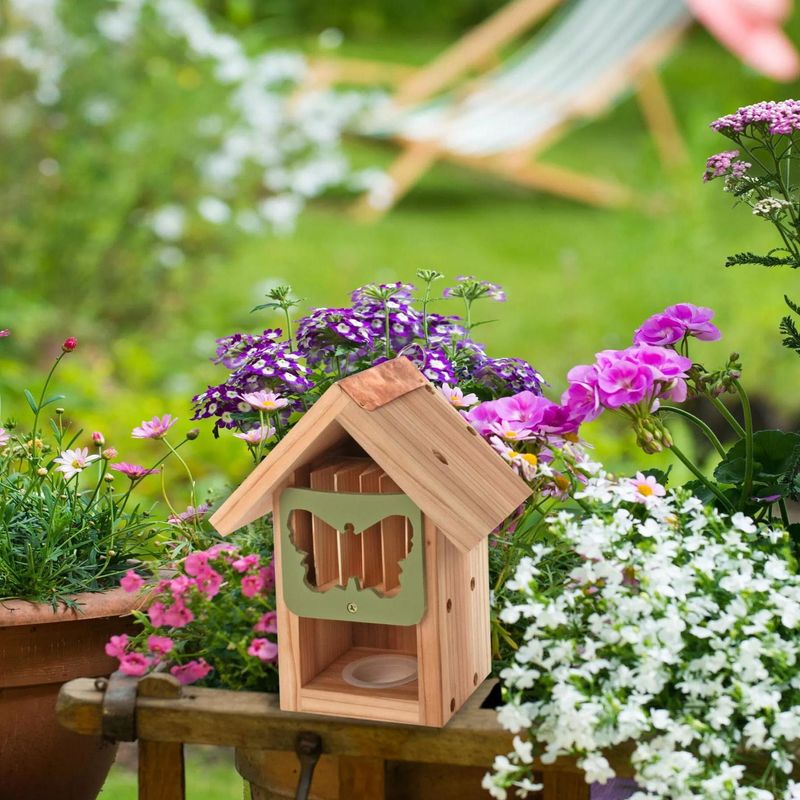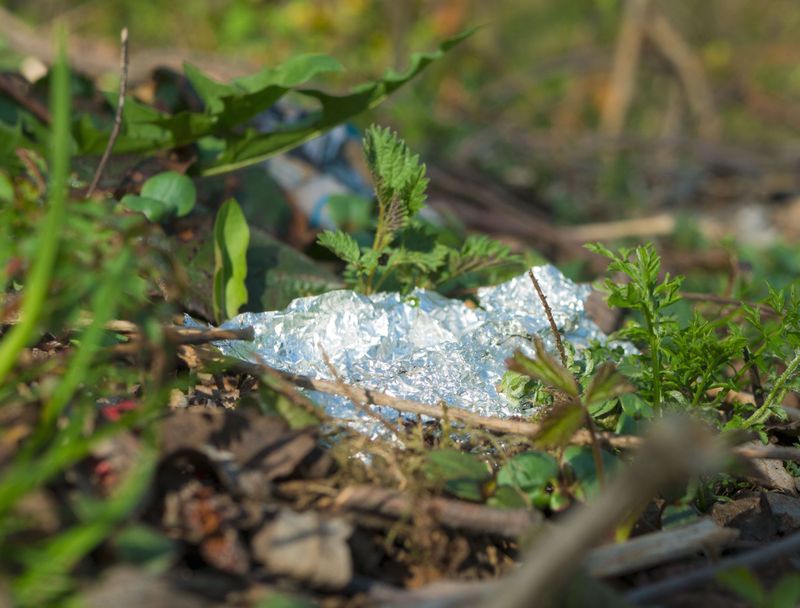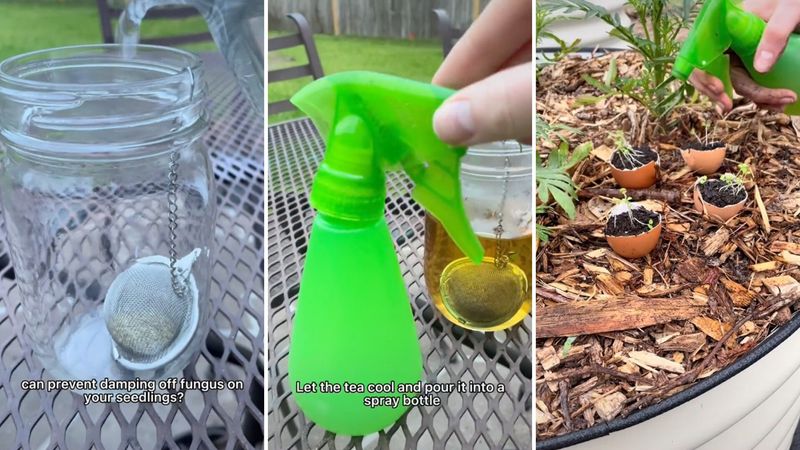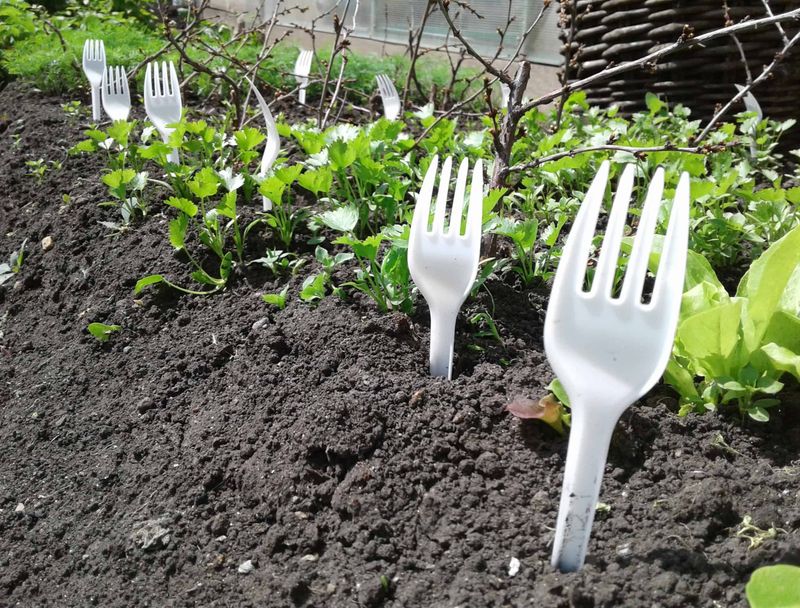Gardening doesn’t have to be conventional. Here are some unconventional hacks that can elevate your gardening game. These bizarre but effective strategies are sure to surprise and delight.
Explore these innovative methods and see for yourself just how effective these quirky techniques can be. Whether you’re a seasoned gardener or a beginner, these tips are designed to inspire creativity in your gardening endeavors.
1. Banana Peel Fertilizer
Did you know that banana peels can double as a fantastic fertilizer? The peel is rich in essential nutrients like potassium, phosphorus, and calcium, which are vital for plant health.
Simply bury a banana peel near the roots of your plants. Doing so enriches the soil and promotes healthy growth.
This simple act is both eco-friendly and cost-effective, reducing waste while nourishing your garden. It’s a natural way to boost your plants’ strength and vitality. Next time you enjoy a banana, remember that its peel can work wonders in your garden.
2. Eggshell Seed Starters
Eggshells are more than just kitchen waste; they’re perfect seed starters! Rich in calcium, they help prevent common plant diseases and improve soil structure.
Simply fill half an eggshell with soil, plant your seed, and place it on a tray. The eggshell will decompose over time, adding nutrients to the soil. This hack is ideal for those starting seeds indoors and looking for an eco-friendly option.
Plus, it’s a fun DIY project that adds a touch of whimsy to your gardening routine. Try it out and watch your seedlings thrive!
3. Coffee Grounds Pest Control
If pests are a problem in your garden, consider using coffee grounds as a natural deterrent. The strong aroma repels unwanted insects while enriching the soil with nitrogen.
Simply scatter used coffee grounds around the base of your plants. This not only keeps pests at bay but also keeps your plants healthy. It’s an excellent way to recycle kitchen waste while maintaining a thriving garden.
Enjoy the double benefit of a pest-free garden and nutrient-rich soil. Give it a try and enjoy watching your garden flourish!
4. Milk for Powdery Mildew
Powdery mildew can be a pesky problem, but milk might be your unexpected ally. This common household item works as an effective fungicide.
Mix one part milk with two parts water and spray it on the affected leaves. The milk’s enzymes work to inhibit fungal growth, providing a natural solution to a common issue.
It’s a simple, safe, and organic way to combat powdery mildew without resorting to harsh chemicals.
Try this hack the next time you spot mildew on your plants and see the difference it makes.
5. Epsom Salt for Tomatoes
Tomato plants love magnesium, and Epsom salt is an excellent source. It helps plants absorb nutrients like nitrogen and phosphorus more efficiently.
To boost your tomatoes, sprinkle Epsom salt around the base when planting and throughout the growing season.
This encourages strong growth and enhances the flavor of your tomatoes. An easy and affordable supplement, Epsom salt can transform your tomato yield.
With consistent use, you can expect healthier plants and more delicious tomatoes. It’s a must-try hack for any tomato enthusiast!
6. Sugar for Grass Greener
Believe it or not, sugar can help keep your lawn green. It encourages beneficial microbes in the soil, which promotes healthy grass growth.
Sprinkle a light layer of sugar over your lawn, and water it in. The sugar feeds the soil’s microorganisms, creating a healthy environment for your grass. This unusual method is both simple and effective, giving you a lush, green lawn without harsh chemicals.
Try it out and enjoy the vibrant results in your outdoor space. It’s a sweet solution for a beautiful lawn!
7. Aspirin for Plant Immunity
Aspirin isn’t just for headaches; it can boost plant immunity too! The salicylic acid in aspirin helps plants fight off diseases.
Dissolve an aspirin tablet in a gallon of water and spray your plants every few weeks. This strengthens their defenses and promotes growth. It’s a simple way to enhance your plants’ natural resilience.
Incorporate this hack into your gardening routine for healthier, more robust plants. It’s an unexpected but effective strategy for maintaining a thriving garden.
8. Vinegar for Weed Control
Tired of pesky weeds? Vinegar might be your new best friend. This household staple is an effective, natural weed killer.
Simply spray undiluted vinegar directly onto the weeds. The acetic acid breaks down the plants, killing them without harming the soil. It’s a safe, non-toxic alternative to chemical herbicides, making it an excellent choice for eco-conscious gardeners.
Regular use can keep your garden paths and beds weed-free. Experience the satisfaction of a tidy garden with this straightforward hack.
9. Baking Soda for Sweeter Tomatoes
Want sweeter tomatoes? Baking soda might be the key. This common kitchen ingredient can enhance tomato flavor by reducing soil acidity.
Sprinkle a small amount around the base of your tomato plants. The change in pH results in noticeably sweeter fruit. It’s an easy and natural way to improve your harvest’s taste.
Incorporate this hack into your gardening routine, and enjoy more flavorful tomatoes. It’s a simple tweak with delicious results, perfect for any tomato lover.
10. Cinnamon for Fungus Prevention
Cinnamon isn’t just for cooking; it can prevent damping-off disease in seedlings. This common kitchen spice has antifungal properties.
Sprinkle cinnamon on soil where seedlings are growing. It helps protect against fungus, ensuring healthier growth. It’s a natural alternative to chemical fungicides, perfect for organic gardening.
Incorporate this aromatic spice into your gardening routine and watch your young plants thrive. It’s a fragrant and effective way to nurture your garden naturally.
11. Honey as a Rooting Hormone
Looking for a natural rooting hormone? Honey might be the answer. It’s a natural antiseptic and encourages healthy root growth.
Dip your plant cuttings in honey before planting them in soil or water. This encourages faster root development and reduces transplant shock. Honey is a gentle yet effective way to propagate plants without synthetic hormones.
Try this sweet hack for propagating your favorite plants, and enjoy watching them flourish with vigor.
12. Soap for Ant Control
Ants can be a nuisance in the garden, but soap provides a simple solution. Dish soap disrupts their trail, keeping them at bay.
Mix a few drops of dish soap with water and spray it on ant trails. This breaks down their pheromone trail, reducing their presence in your garden. It’s a quick, effective, and non-toxic way to handle ant issues.
Incorporate this hack into your pest control routine for a more peaceful garden experience.
13. Tea Bags for Acid-Loving Plants
Don’t toss those used tea bags! They can benefit acid-loving plants like azaleas and roses. The tannic acid and nutrients in tea enrich the soil.
Place used tea bags around the base of your plants. As they decompose, they gradually acidify the soil, creating the perfect environment for these plants. It’s an efficient way to recycle and enhance your garden’s health.
Give this simple hack a try and see how your acid-loving plants respond with vibrant growth.
14. Butterfly House from Old Wood
Create a haven for butterflies using old wood. These lovely insects play a crucial role in pollination, and providing them shelter encourages them to visit your garden.
Construct a simple butterfly house with narrow slits to protect them from predators. Hang it in a sunny spot near nectar-rich plants. This environmentally-friendly project supports biodiversity and adds charm to your garden.
Embrace this creative hack and enjoy the beauty and benefits of a butterfly-friendly environment.
15. Aluminum Foil for Reflective Mulch
Boost your garden’s sunlight exposure with aluminum foil. This reflective mulch increases the amount of light reaching your plants, promoting photosynthesis.
Lay strips of aluminum foil on the soil around plants. This reflects sunlight back onto the leaves, encouraging robust growth. It’s an innovative way to maximize available light, especially in shaded areas.
Experiment with this unique method and watch your plants thrive with increased vigor.
16. Chamomile Tea for Seedlings
Chamomile tea isn’t just soothing for humans; it’s beneficial for seedlings too. Its natural antifungal properties prevent damping-off disease.
Brew a weak chamomile tea and use it to water your seedlings. This gentle treatment helps keep them healthy and strong. It’s a nurturing way to support young plants naturally.
Try incorporating this calming tea into your seedling care routine and observe the positive results.
17. Plastic Forks to Deter Critters
Repurpose plastic forks to protect your garden from critters. These common utensils can be an effective deterrent.
Stick forks handle-down into the soil around plants. The prongs create a barrier that discourages animals from disturbing your plants. It’s a simple, budget-friendly solution to a common problem.
With this hack, you can enjoy a critter-free garden without the need for harmful chemicals. Keep your garden safe and flourishing with this unusual trick.
